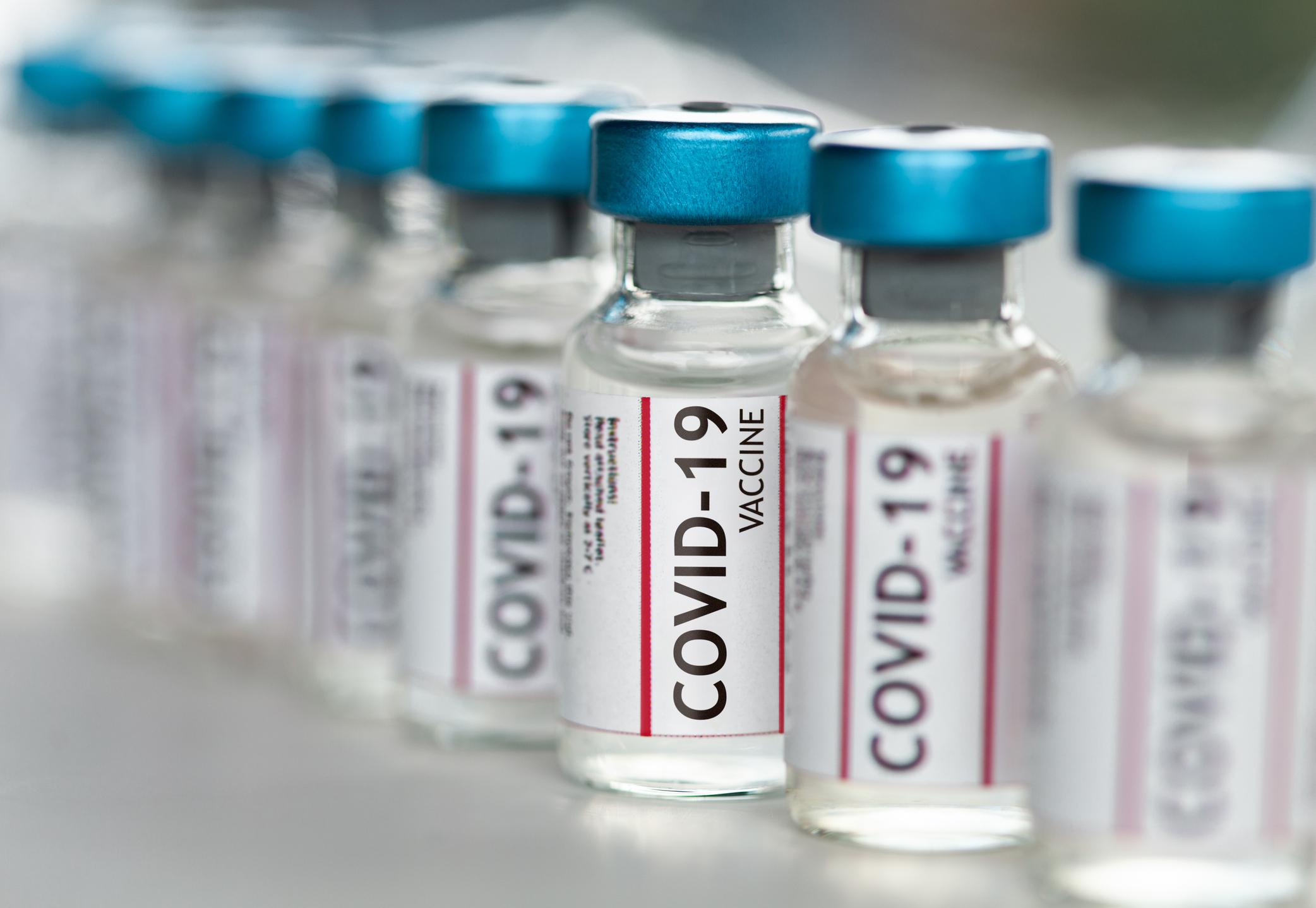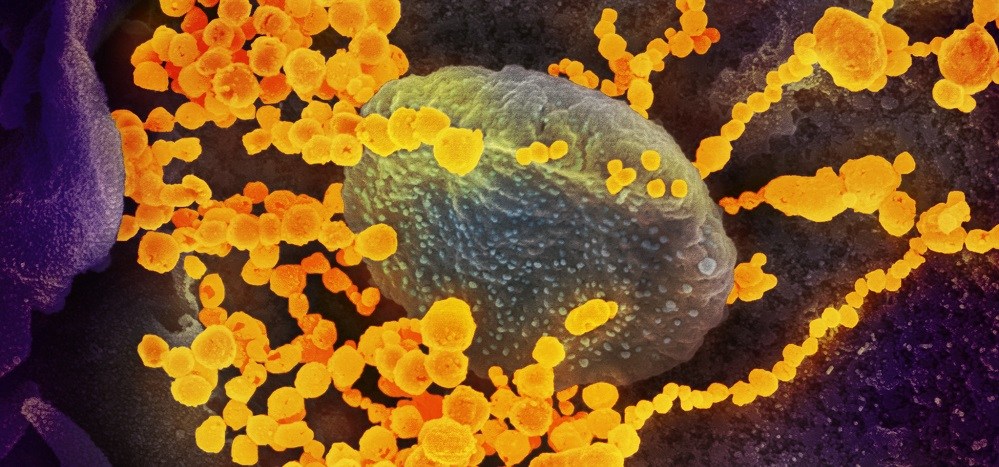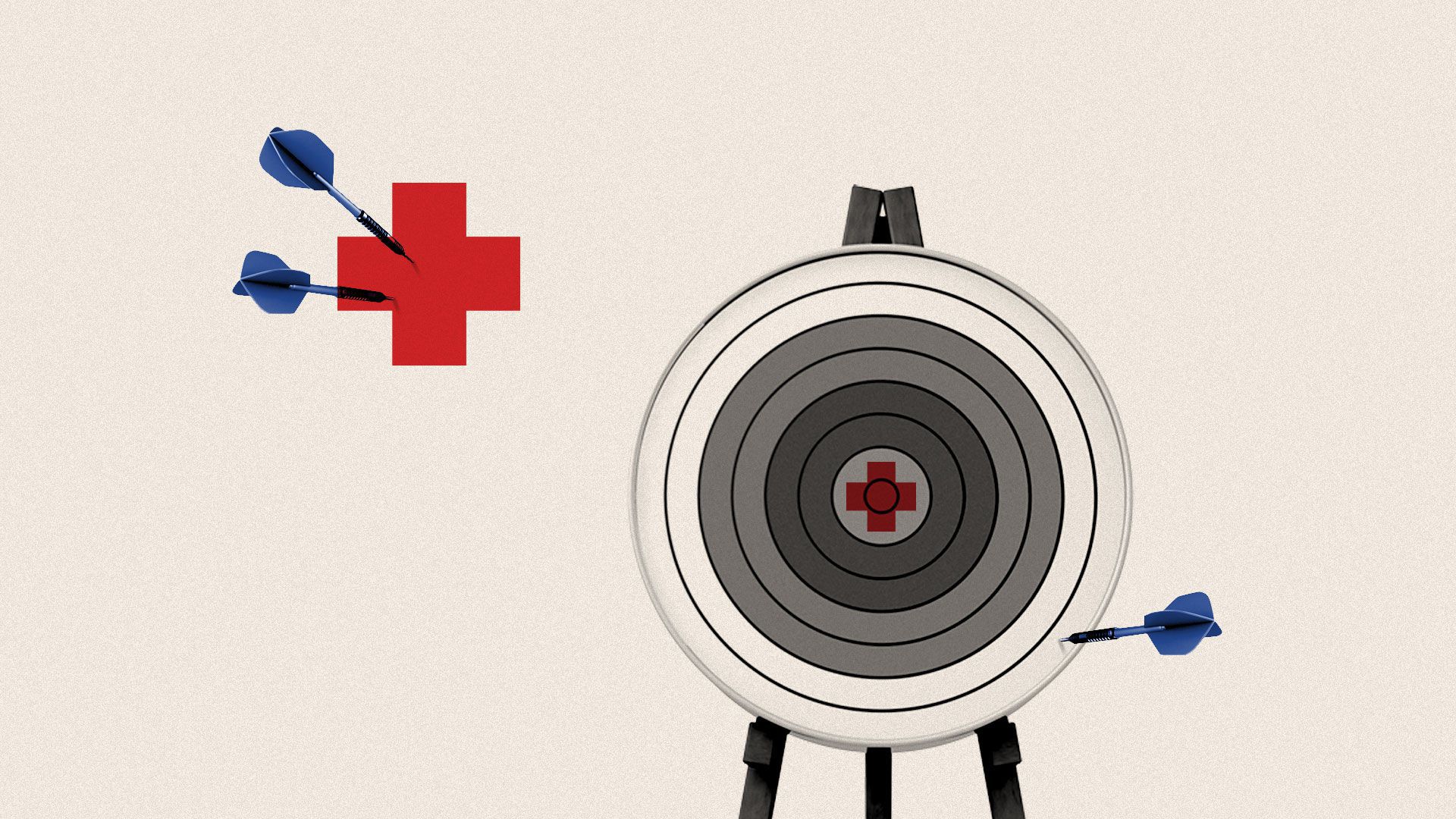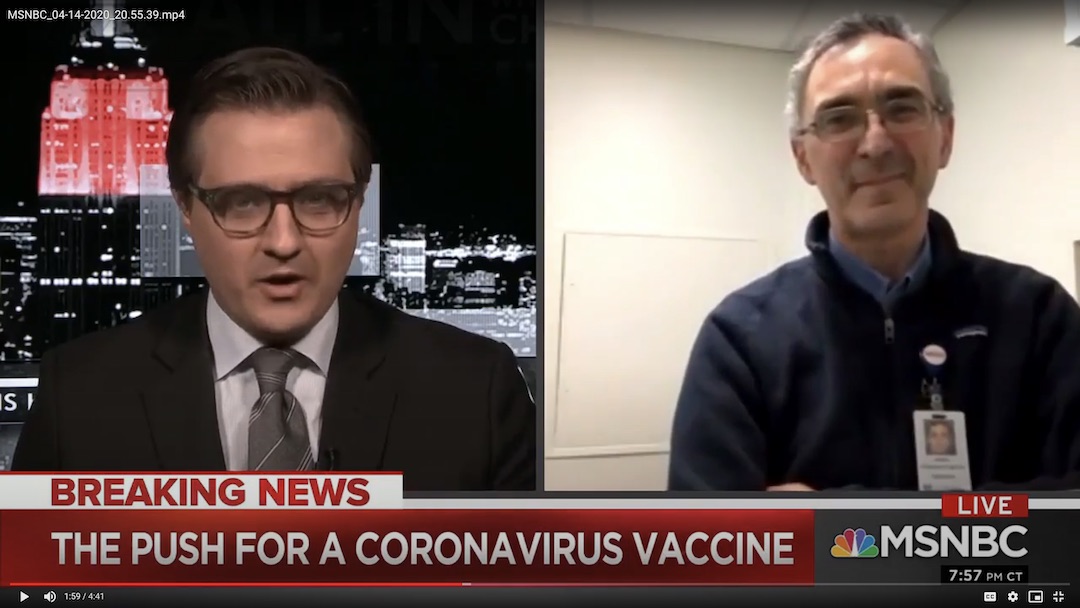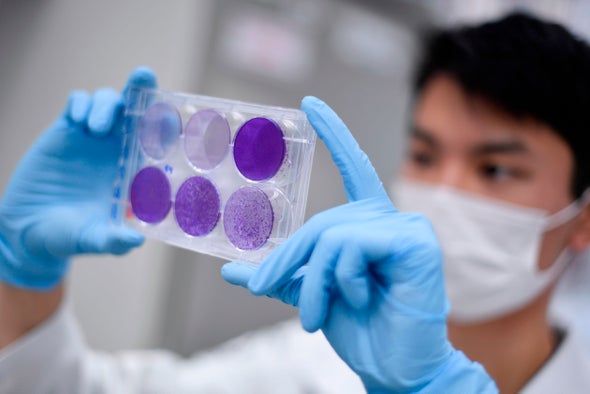Director of the Vaccine and Immunotherapy Center (VIC) at Massachusetts General Hospital, Dr. Mark Poznansky, joins Dr. Marc Siegel on Sirius XM Doctor Radio and discusses the latest information on vaccine development, current therapeutics, Long COVID, individual responsibility in preventing the spread of COVID, and the United States’ ability to tackle the next pandemic.
Dr. Poznansky on Sirius XM Canada Talks
The Biden administration is already quickly working on a vaccine strategy for distribution in the United States. Mass General Hospital’s Dr. Mark Poznansky spoke with @SXMCanadaTalks host Matt Gurney about what the timelines could look like. Dr. Poznansky says he’s optimistic and that while “it’s never fast enough given the pandemic curve we’re on at the moment, at least it’s happening step-by-step.
It’s not over when the vaccine arrives
Mark Poznansky interviewed for a report on Axios.com by Alison Snyder and Sam Baker
After Crowded Memorial Day Celebrations, Mass. General Vaccine Chief Warns Coronavirus Is Still ‘Highly Infectious and Transmissible’
From a crowded pool party at Lake of the Ozarks in Missouri to a street party in Daytona Beach, Florida, Memorial Day festivities brought hundreds close together in several U.S. cities Monday — largely without masks or other such precautions.
But while behaviors related to the pandemic have changed in recent days, the director of the Vaccine and Immunotherapy Center at Massachusetts General Hospital said the coronavirus itself is still very much the same.
“The virus is what it was previously: highly infectious and transmissible from one person to others over short distance,” Dr. Mark Poznansky told Jim Braude on WGBH News’ Greater Boston Tuesday.
How a Mass General Vaccine Accelerator Could Play a Crucial Role in the COVID-19 Response
Mark Poznansky MD, PhD, A Steve and Deborah Gorlin MGH Research Scholar, explains his approach to developing a vaccine for COVID-19
“The current COVID-19 pandemic has demonstrated how quickly an emerging infectious disease (EID) can spread across the globe, threaten individual heath and wreak havoc on the economy and our way of lives.
Almost a decade before the current COVID-19 outbreak, Mass General investigator and Infectious Diseases Physician, Mark Poznansky, MD, PhD, received funding from the Defense Advanced Research Projects Agency (DARPA) to develop a platform for accelerated vaccine development in the event of a rapidly spreading EID.
That forward-thinking funding resulted in…”
“The coronavirus is a moving target” – article on the Axios.com news platform
Mark Poznansky was interviewed by Alison Snyder of Axios and this article includes a number of his thoughts on how the virus is evolving and how vaccines must be able to react to these changes.
Dr. Mark Poznansky was interviewed live on MSNBC
Dr. Mark Poznansky was interviewed live on All in with Chris Hayes MSNBC, April 14 to discuss vaccines during the COVID-19 pandemic. Chris acknowledged that Dr. Poznansky is beginning research on a vaccine at the Vaccine and Immunotherapy Center at MGH and the discussion was based around the timeline for a vaccine and the efficacy of a vaccine before it can be used on millions of people worldwide. Dr. Poznansky also said that links with industry are crucial in order to move forward with efficacy studies and manufacturing after the initial vaccine design and noted that we are collaborating with Voltron, Inc and Hoth Therapeutics for this purpose.
Can We Really Develop a Safe, Effective Coronavirus Vaccine?
The Scientific American article makes for very interesting reading – written by William A. Haseltine a mentor of Mark Poznansky, when he was doing research in the HIV field.
“In the event of any infectious disease outbreak, our minds turn to vaccines—and they do so for good reason. They’re safe, relatively expensive and have worked well for diseases including smallpox, polio, yellow fever, and, most recently, Ebola.
Will a vaccine come as easily for the novel coronavirus? The answer is maybe yes, maybe not. The “maybe yes” comes from the observation that in animal studies, coronaviruses stimulate strong immune responses, which seem capable of knocking out the virus. Recovery from COVID-19 may be in large part due to effective immune response. The “maybe not” comes from evidence just as strong, at least with earlier SARS and MERS viruses, that natural immunity to these viruses is short-lived. In fact, some animals can be reinfected with the very same strain that caused infection in the first place…”



